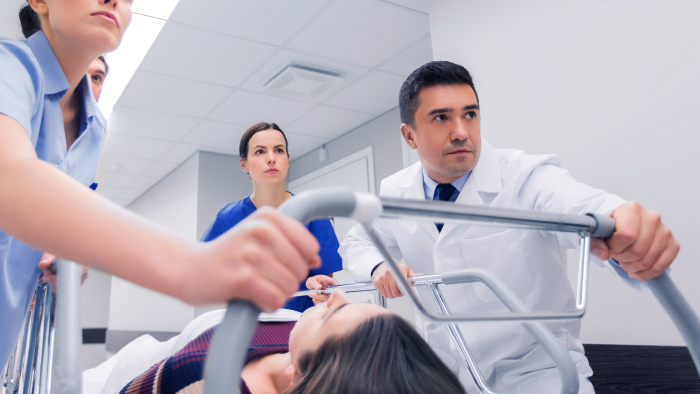Heart attack occurs when blood flow to the heart is blocked and heart muscle cells begin to die. Restoring blood flow quickly stops the damage and preserves heart function.
Stroke occurs when blood flow is blocked to the brain. According to the National Stroke Association, two million brain cells die every minute during a stroke, making fast treatment essential to survival and recovery.


